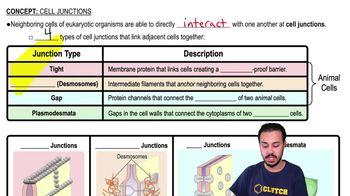Here are the essential concepts you must grasp in order to answer the question correctly.
Host Cells
Host cells are living cells that provide the necessary environment and resources for viruses to replicate. Viruses cannot reproduce independently; they rely on the cellular machinery of host cells to produce new viral particles. This interaction is crucial for the virus's life cycle and propagation.
Recommended video:
Viral Requirements
Viruses require specific components from host cells to replicate and assemble new virions. These components include ATP for energy, nucleotides for viral genome synthesis, and amino acids for protein production. Understanding these requirements helps clarify how viruses exploit host cellular processes.
Recommended video:
DNA Polymerase Requirements
Ribosomes
Ribosomes are cellular structures responsible for protein synthesis. Viruses utilize the ribosomes of host cells to translate their genetic information into proteins necessary for their structure and function. This dependency on host ribosomes is a key aspect of viral replication and highlights the interplay between viruses and host cells.
Recommended video:
 Verified step by step guidance
Verified step by step guidance


